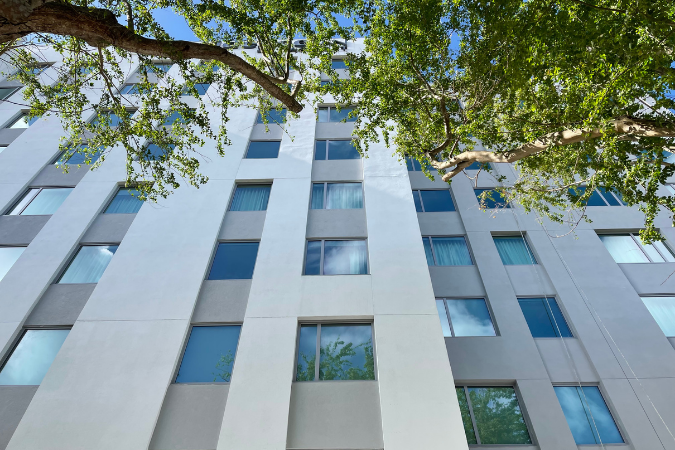7 Things You Should Know Before Developing Your Next Hospitality Project
Written By AD&V®ABOUT THE AUTHOR | AD&V® is dedicated to advanced and energy-efficient sustainable architecture & interior design that enhances people’s experience of the world and improves their lives.
DEVELOPERS USUALLY TAKE ON THE GREATEST RISK IN THE CREATION OF HOSPITALITY PROJECTS.
The hotel development process is a very complex process requiring a myriad of professionals all working collaboratively and in coordination to achieve a hotel’s ultimate success. It's a process that can make or break any project. Here is a list of seven things every developer should know before developing a hospitality project.
1. HOTEL BRAND STANDARDS
Before developing a hospitality project, developers need to follow the specific construction and design guidelines of the hotel brand or flag. If developers don't follow hotel brand standards from the beginning, they can end up having to redo or change things that have already been finished in order to be in compliance with the hotel brand.These alterations result in construction delays, additional costs and resources. Following the flag’s specifications from the start, saves developers time and money.
2. LOCAL RULES & REGULATIONS
In addition to following hotel brand standards, developers must also adhere to local laws and regulations where the hospitality project is being built. If something during the hospitality project's development process doesn’t comply with local laws, then it can put the project at risk of being shut down.Developers rely on Architects to ensure the project, as designed adheres to the latest building codes, and follows all laws and regulations.
3. HAVE A BACKUP PLAN
Developers need to have a backup plan when it comes to the design features of hospitality projects. Often the preselected furnishings, fixtures, and materials can either be unavailable, backordered, or just too costly.To ensure the design intent is maintained, developers should work closely with the designers to come up with similar alternatives, suppliers and resources that can replace preselected design elements as needed to stay within time and budget.
4. GOOD COMMUNICATION WITH DESIGNERS
When purchasing the hotel's furnishings and looking for design alternatives it’s important that the developers consult with the hotel's interior designers to confirm that what they are suggesting as an alternative stays true to the original design intent. As Charles Eames famously said, “The details are NOT the details, they MAKE the design.”If developers select and purchase the wrong furnishings, it can completely change or ruin the hotel's interior. There must be good communication between the designer and the developer to execute the desired outcome and maintain the design intent of the hospitality project.
5. THINK LONG-TERM MAINTENANCE
During the selection of hotel fixtures, furnishings, materials, and textures, developers need to keep in mind that what's selected needs to last and be easily maintained. If things in the hotel need to be fixed or replaced after a short amount of time, it will increase the hotel’s maintenance costs.Making selections without taking quality and durability into consideration can cause hotel maintenance problems and added costs in the long run.
6. SUSTAINABLE MEASURES
Incorporating sustainable measures throughout the entire development process makes hospitality projects lower operational costs, and enhance guest experience while conserving natural resources.If sustainability measures such as energy-saving and water-efficient equipment, lighting controls, thermal comfort measures, electric vehicle charging stations, indoor air quality management plans, and enhanced systems commissioning are incorporated from the start of the hotel's construction to its operational phase, developers will have a better and healthier hospitality project on their hands.
7. FINDING THE RIGHT PARTNER
A strong partnership between a developer and an architecture firm is fundamental to the development of successful hospitality projects. A solid, enduring partnership with an architecture firm enables developers to deliver remarkable hospitality projects for clients, investors, guests, and everyone involved.
CREATING VALUE
The hotel development process is not an easy one. It requires strategic planning, rule compliance, good communication, and strong partnerships. Taking these things into consideration before developing your next hospitality project will help you create valuable and prosperous projects that will last.

